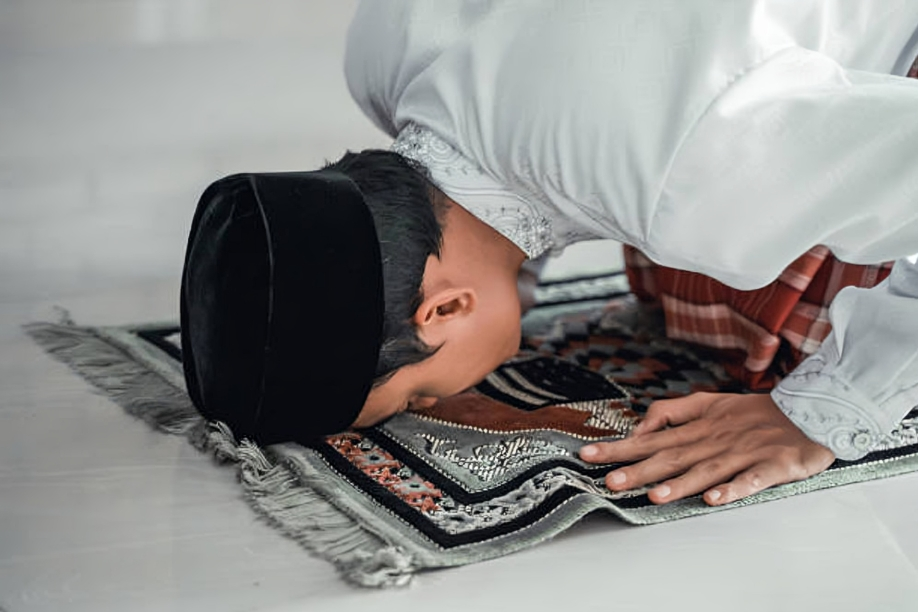Four Rakʿāt Before Jumuʿah
Voluntary Prayers vs. Fixed Sunnah
There is no Sunnah prayer specifically fixed before the Jumuʿah fard. The Prophet ﷺ encouraged voluntary prayers upon arriving at the mosque, but he did not establish four rakʿāt before Jumuʿah as he did for Dhuhr. The Sunnah linked to Jumuʿah is after the fard: two at home or four in the mosque.
| Four Rakʿāt Before Jumuʿah — Critical Overview | |
|---|---|
| Practice | Praying four rakʿāt Sunnah immediately before the Jumuʿah fard prayer. |
| Islamic ruling | Not prescribed. Voluntary prayers are recommended before Jumuʿah, but no fixed Sunnah of four rakʿāt exists. The Sunnah is after Jumuʿah. |
| When it started | Not known from the Prophet ﷺ or the Companions. Later generations began fixing it by analogy with Dhuhr Sunnah. |
| Where it spread | Common in many regions, especially South Asia, where people equate it with Dhuhr Sunnah. |
| Practices associated with it |
|
| Similarities in other religions (Muslims likely copied from) |
These show how preliminary rituals can become formalized without scriptural proof. |
Prophetic Guidance
The Prophet ﷺ said:
“When one of you has prayed Jumuʿah, let him pray four rakʿāt afterwards.”
Sahih Muslim 881
He also said:
“When you pray at home after Jumuʿah, pray two rakʿāt.”
Sahih Muslim 882
There is no authentic hadith prescribing four rakʿāt before Jumuʿah.
Scholarly Consensus
– No fixed Sunnah before Jumuʿah.
– General voluntary prayers are recommended upon entering the mosque.
– The confirmed Sunnah linked to Jumuʿah is after the fard: two at home, four in the mosque.
The Wisdom Behind the Ruling
- Clarity: Prevents mixing Sunnah of Dhuhr with Jumuʿah.
- Authenticity: Keeps worship tied to authentic texts.
- Flexibility: Encourages voluntary prayer without fixing numbers the Prophet ﷺ left open.
- Unity: Avoids unnecessary disputes about non-Sunnah practices.
Common Misconceptions
1) “But Dhuhr has four Sunnah before it, so Jumuʿah must too.”
Analogy cannot replace Prophetic practice.
2) “Everyone prays it in our mosque, so it must be Sunnah.”
Consensus of practice does not equal evidence.
3) “It’s just extra prayer, why call it bidʿah?”
Voluntary prayer is fine, but fixing it as Sunnah without proof makes it an innovation.
Contemporary Reflections
Muslims eager for reward can pray voluntary rakʿāt before Jumuʿah without fixing them as Sunnah. What matters is humility and devotion, not conformity to an invented pattern.
Conclusion
There is no prescribed four rakʿāt before Jumuʿah. Voluntary prayers are recommended, but the Sunnah linked to Jumuʿah comes after the fard: two at home or four in the mosque. Fixing four rakʿāt before Jumuʿah as Sunnah is bidʿah, as it lacks any basis in Qur’an or Sunnah.
References
Primary Sources
Hadith
- Sahih Muslim 881: Four rakʿāt after Jumuʿah.
- Sahih Muslim 882: Two rakʿāt at home after Jumuʿah.
- Sahih al-Bukhari 2697; Sahih Muslim 1718: Innovation is rejected.
Secondary Sources
- Ibn Taymiyyah, Majmū‘ al-Fatāwā: Clarification on Sunnah prayers linked to Jumuʿah.
- Al-Nawawī, al-Majmū‘: No fixed Sunnah before Jumuʿah, but voluntary prayers are encouraged.
- Al-Shatibi, al-I‘tiṣam: Warning against fixing rituals without evidence.

